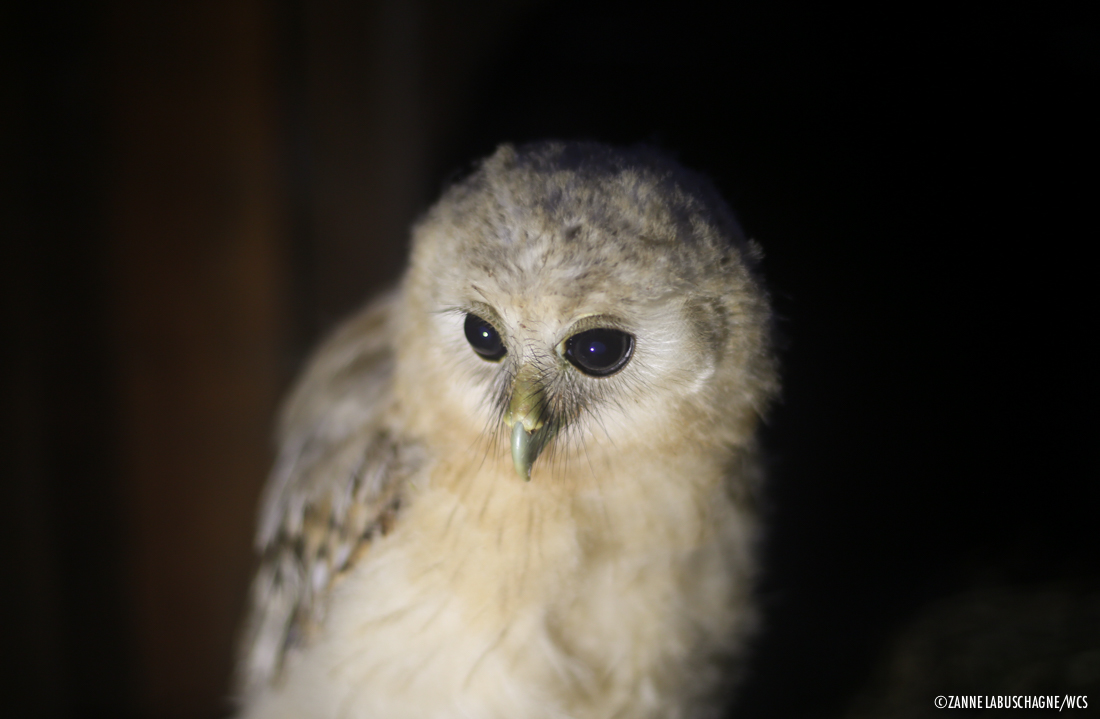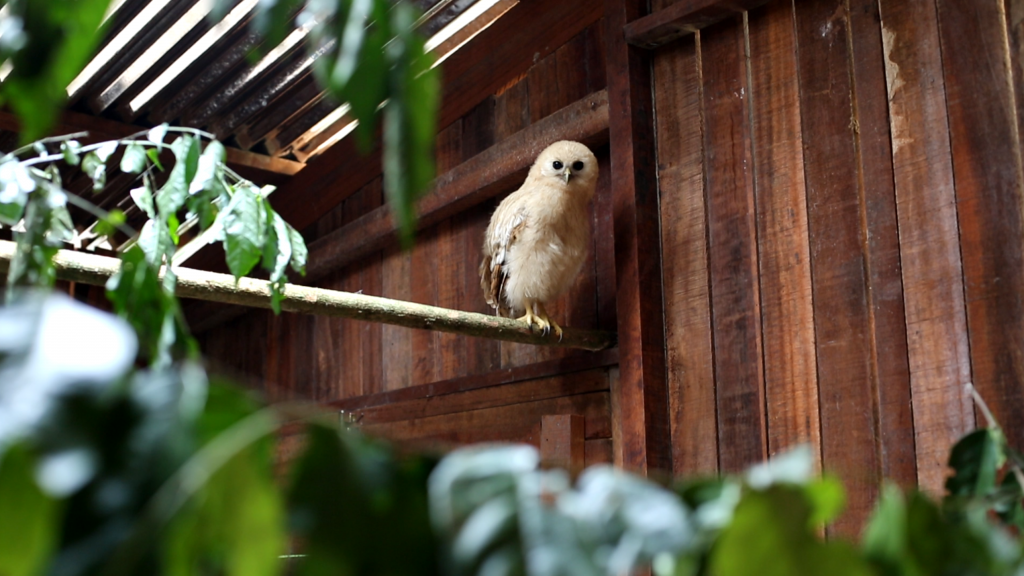
Second chance for young Fishing Owl
This young Vermiculated fishing owl (Scotopelia bouvieri) has had a rough couple of weeks. The chick, estimated to be about three to four weeks old, was recovered at a road block on the periphery of the Nouabale-Ndoki National Park.
The owl was picked up by a group of fishermen on the Motaba, a black watered river flowing east from the heart of the Park. The fishermen, travelling by dugout canoe on the river, witnessed a large snake slithering into the Vermiculated Fishing Owl’s nest. One of the two chicks was pulled out of the nest by the snake, tumbling into the river below in the serpent’s deathly embrace. The fishermen feared for the safety of the second chick, and believing they were helping it, removed it from the nest to domesticate it. Upon arrival at a checkpoint on the main southward bound route, manned by the Nouabale-Ndoki National Park rangers, the fishermen discovered that they had unknowingly broken the law by removing the owl from its nest and keeping it in captivity. They quickly handed over the owl to the rangers who sent it down to Bomassa to be raised and released into the wild when ready.

The young owl will be cared for at the new parrot rehabilitation centre in Bomassa. The facility, completed in November 2017, was created to care for seized African Grey Parrots (Psittacus erithacus) – nursing them back to good health, which can take up to six months, and ultimately releasing them back into the wild. The facility currently holds 60 parrots, and the newly arrived owl. The second building will be completed early in 2018 with a final capacity to hold 400 parrots. Two Congolese parrot carers, René and Anouchka, have been trained on parrot care, and now on the additional care instructions for the young owl. Vermiculated fishing owls generally fledge at just over two months after hatching, but depend on their parents for much longer (up to nine months). Watch this space for more news from the project.


